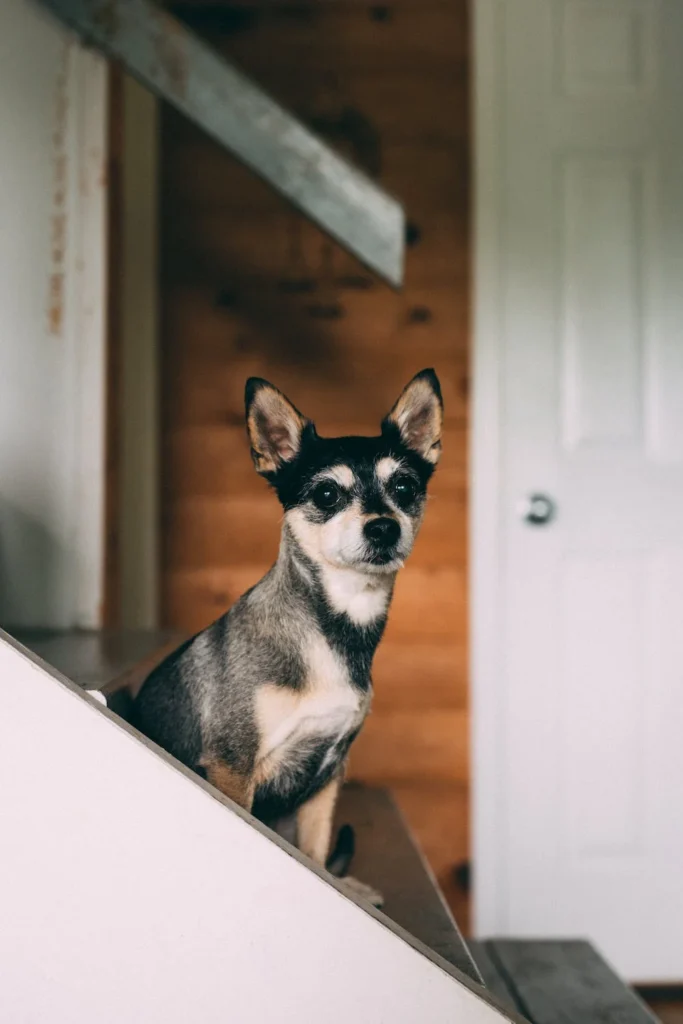
Dogs are social creatures and they thrive on companionship. However, there are times when we have to leave our dogs alone, such as when we go to work or run errands. It is important to know how long we can leave our dogs alone without them becoming stressed or anxious.
In this blog post, we will discuss the factors that affect how long a dog can be left alone, as well as some tips for making sure that your dog is comfortable and safe when you are gone.
Factors that Affect How Long a Dog Can Be Left Alone
There are a number of factors that affect how long a dog can be left alone, including the dog’s age, breed, personality, and training.
- Puppies should not be left alone for more than a few hours at a time, as they are still developing and need to go to the bathroom frequently. As they get older, they can be left alone for longer periods of time, but it is still important to gradually increase the amount of time they are left alone.
- Adult dogs can generally be left alone for up to 4-6 hours at a time. However, some dogs may be able to handle being left alone for longer periods of time, while others may not. It is important to pay attention to your dog’s individual needs and make sure that they are not getting too stressed or anxious when they are left alone.
- Senior dogs may need to be left alone for shorter periods of time, as they may have more difficulty holding their bladder or bowels. They may also be more prone to separation anxiety.
- The breed can also play a role in how long a dog can be left alone. Some breeds, such as Labrador Retrievers and Golden Retrievers, are generally more adaptable and can be left alone for longer periods of time. Other breeds, such as Border Collies and Jack Russell Terriers, are more active and may need to be left alone for shorter periods of time.
- Personality is another important factor to consider. Some dogs are more independent and less likely to get stressed or anxious when they are left alone. Other dogs are more clingy and need more attention. It is important to know your dog’s personality and adjust the amount of time you leave them alone accordingly.
- Training can also help dogs to cope with being left alone. If your dog is well-trained, they will be more likely to stay calm and relaxed when you are gone. You can also train your dog to be comfortable with being left alone by gradually increasing the amount of time you leave them alone and providing them with plenty of toys and activities to keep them occupied.
Tips for Leaving Your Dog Alone
If you have to leave your dog alone, there are a few things you can do to make sure that they are comfortable and safe:
- Make sure that your dog has access to food, water, and a comfortable place to sleep.
- Give your dog a toy or two to keep them occupied.
- Exercise your dog before you leave them, so they are less likely to get restless.
- Gradually increase the amount of time you leave your dog alone, so they can get used to being on their own.
- If you have a puppy or a dog with separation anxiety, you may want to consider hiring a dog walker or sitter to come and check on them during the day.
If you are going to be gone for an extended period of time, it is best to arrange for someone to stay with your dog or to board them at a kennel.
The amount of time that a dog can be left alone depends on a number of factors. It is important to pay attention to your dog’s individual needs and make sure that they are not getting too stressed or anxious when they are left alone. By following the tips in this blog post, you can help your dog to cope with being left alone and enjoy their time with you even when you are not around.
Frequently Asked Questions
Q: How long can I leave my puppy alone?
A: Puppies should not be left alone for more than a few hours at a time. As they get older, they can be left alone for longer periods of time, but it is still important to gradually increase the amount of time they are left alone.
Q: How long can I leave my adult dog alone?
A: Adult dogs can generally be left alone for up to 4-6 hours at a time. However, some dogs may be able to handle being left alone for longer periods of time, while others may not. It is important to pay attention to your dog’s individual needs and make sure that they are not getting too stressed or anxious when they are left alone.
Q: What are the signs that my dog is stressed or anxious when left alone?
A: Some signs that your dog is stressed or anxious when left alone include:
- Whining or barking
- Scratching at doors or windows
- Destroying furniture or belongings
- Going to the bathroom in the house
- Panting or excessive drooling
- Shaking or trembling
Q: What can I do to help my dog cope with being left alone?
A: There are a few things you can do to help your dog cope with being left alone, including:
- Make sure that your dog has access to food, water, and a comfortable place to sleep.
- Give your dog a toy or two to keep them occupied.
- Exercise your dog before you leave them, so they are less likely to get restless.
- Gradually increase the amount of time you leave your dog alone, so they can get used to being on their own.
- If you have a puppy or a dog with separation anxiety, you may want to consider hiring a dog walker or sitter to come and check on them during the day.
Q: What should I do if my dog is showing signs of separation anxiety?
A: If your dog is showing signs of separation anxiety, there are a few things you can do, including:
- Consult with a veterinarian or animal behaviorist.
- Start by gradually increasing the amount of time you leave your dog alone for short periods of time.
- Provide your dog with a safe place to go when you are gone, such as a crate or a quiet room.
- Give your dog plenty of toys and activities to keep them occupied.
- Try to avoid leaving your dog alone for long periods of time.
Q: What are the risks of leaving my dog alone for too long?
A: There are a number of risks associated with leaving your dog alone for too long, including:
- Your dog may become stressed or anxious, which can lead to destructive behavior or other problems.
- Your dog may not be able to hold their bladder or bowels, which can lead to accidents in the house.
- Your dog may get injured or sick, and you may not be there to help them.
It is important to be aware of the risks associated with leaving your dog alone for too long and to take steps to minimize those risks.
